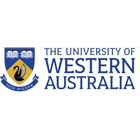Master of Hydrogeology
Master of Hydrogeology
Hydrogeological systems are complex and their dynamics are controlled by a variety of physical, chemical and biological processes. Hydrogeologists aim to understand these processes and how best to utilise groundwater resources both now and for future generations. Hydrogeologists are also critical in the mining, construction and other industries to ensure…
Categories
COURSE DESCRIPTION
Hydrogeological systems are complex and their dynamics are controlled by a variety of physical, chemical and biological processes. Hydrogeologists aim to understand these processes and how best to utilise groundwater resources both now and for future generations. Hydrogeologists are also critical in the mining, construction and other industries to ensure anthropogenic impacts are minimised and safe working conditions are provided.
The Master of Hydrogeology is suitable for both freshly graduated undergraduate students and professionals already in industry looking to improve their skills/qualifications.
Course structure
Postgraduate coursework degrees and combined (coursework and research) degrees comprise a number of units.
5 reasons to study hydrogeology
Hydrogeology allows us to understand how the natural world works. Groundwater is a vital resource in Australia, particularly Western Australia, as well as many other parts of the world. Hydrogeology and groundwater resources are key factors in the sustainability of both our society and the environment
Studying hydrogeology trains us to think logically, critically and quantitatively. We learn to evaluate statements made in the scientific literature, as well as in non-science areas, based on evidence, not anecdotes. These skills are highly desired by employers in all employment sectors
Career Pathways
Employment opportunities for Hydrogeology graduates can be found with:
Resources Industry – minerals, hydrocarbons, construction
Environmental Companies
Government Agencies
Research and Educational Institutions
Studying Energy Geoscience can lead to active research post-study in:
Arid Zone Hydrology
Geothermal Hydrology
Groundwater Dependence of Ecosystems
Hydrogeological Impacts of Waste Water
Reactive Transport Modelling
Water Interaction – surface and groundwater
Further Study
Students completing this degree may have the option to pursue further studies in research.
Join our social circle – don’t miss out on our student and staff stories, scholarship opportunities, news, events and network.
REQUIREMENTS
To be considered for admission to this course an applicant must have—(a) a Bachelor’s degree, or an equivalent qualification, as recognised by UWA; and(b) the equivalent of a UWA weighted average mark of at least 50 per cent; and(c) successfully completed prior tertiary study in geology, environmental engineering, environmental science (including units in hydrology or equivalent), or hydrogeology or in a related cognate discipline as recognised by UWA.
English language requirements:
TOEFL (paper-based): 570 with a Test of Written English (TWE) of no less than 4.5
IBT TOEFL (Internet-based test score): 82 with 22 for writing, 20 for speaking, 20 for listening, and 18 for reading
IELTS (Academic): 6.5 (no band lower than 6.0)
Cambridge Certificate of Proficiency in English: C pass
Cambridge Certificate in Advanced English: B grade
Pearson Test of English (PTE) (Academic): Overall score of 64 with a minimum score of 64 in the Reading and Writing sections, 59 in the Speaking section and 54 in the Listening section
EDUCATIONAL INSTITUTION
The University of Western Australia (UWA) is a proud member of the Group of Eight and is the only university in Western Australia to be ranked in the world top 100 universities (QS World University Rankings 2023).UWA’s main campus is located in Perth, Western Australia and is home to more than 23,000 students. Perth is Australia’s fourth-largest city with over two million people from a variety of cultures worldwide, a strong economy and vibrant lifestyle. Perth is one of the country’s most affordable cities, the closest major Australian city to Asia, and in the same time zone as most of Asia.




